It is close to 7:00 P.M, the library closes in two hours. People come in from the cold, some faces are familiar, there is older Flora and her daughter who consistently arrive before anyone else. Strangers find a seat in the back only to hear “the best seats are up front.”
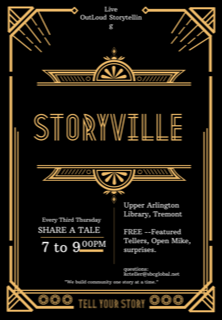
The new bright purple banner announcing the night is propped up exclaiming “Storyville: Stories told Out Loud and Live.” At the far end of the banner in bright white letters, “We build community one story at a time.”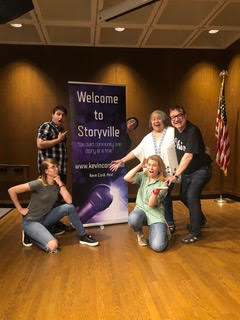
People walk out, the library is closing, someone yells out, “Every town should have a Storyville.” I could not agree more, after all, where else can one go to hear a professional storyteller, a comedian, a first timer, and a new mom share personal stories on the community stage?
We don’t have prizes, we have community. Although there is nothing wrong with incentives or even payment for telling, on this night Storyville invites spaces for diverse, simple and complicated tales of our lives to be shared on our stage.
How did Storyville happen?
Jennifer Faure shares, “I work for a public library and coordinate programs for adults. Several years ago, I met with Kevin Cordi, an internationally known storyteller, and we talked about what it might be like to host a live storytelling program at my library. I loved the idea but didn’t know where to start. Fortunately, Kevin knew what to do. He invited some storytellers that he knew to tell their stories at the library and invited people from the audience to tell their own story. At first, people were nervous about making themselves vulnerable in front of people they didn’t know and were reluctant to tell their own story. But after a while, the spirit of storytelling was infectious and slowly but surely, people started sharing their stories with us. We’ve been hosting Storyville on a monthly basis ever since and it’s been a wonderful experience. The atmosphere is welcoming and supportive and we’ve gotten to really know some of the regular attendees.”
Our set up is simple, one or two featured storytellers, open mike, announcements of other story-related events, and what I call surprises. This can consist of telling true stories from prompts or props or…. they are surprises, I can’t reveal the surprise, but each new surprise is something different with the expressed purpose of inviting more tellers to our community. The mystery invites more tellers and listeners.
Last month a first timer told a story about being in Afghanistan. She told about her fear and relief when people helped her when her horn was stuck, a white woman who is not supposed to drive, she was frightened, but we heard how this fear turned into a story of charity and compassion. Newspapers rarely tell this story of Afghanistan, but this story was live personal account unlike a headline.
This type of storytelling can happen at a bar or a small back room with old standing video games but in this case, it happens in a library. However, Storyville can happen anywhere, bar, library, coffee house, the important thing is it happens.
Our first featured teller over two years ago was the woman responsible for providing scholarships for the people of Gander in Canada, the community that hosted all the people that were grounded from the terrorist act of 911. She spoke of the need to say thank you and give back. Storyville also has this as the goal. Telling our stores open up our lives and gives tellers agency. It is a way of giving to and back to the community. Since that first story, we continue this mission.
Comedian Jessie Pimpinella shared that sometimes the comedy scene can be cruel or unpredictable, but he can count on Storyville. “I am a storytelling comedian that has performed at Storyville many times. Each time was a positive experience and an opportunity to be vulnerable in a world where many feel the need to keep their guard up. “
I have watch Jessie move less to the joke, more to the story and we value each story he brings to our community.
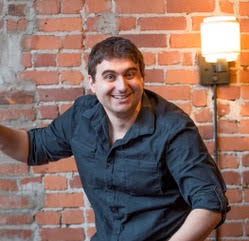
Former college professor Jim Reuther shares his time about being a munitions expert, but instead of this story, he shared the gift he received after he lost his wife to illness. She wrote letters reminding him how to live. This tender and difficult time was his story and he opened it to us. He shares that “Storytelling is experiencing life to the fullest and is necessary to sustain our humanity.”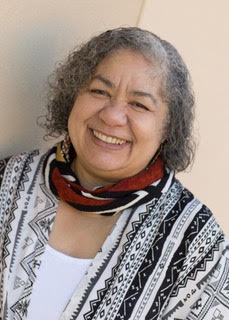
As national teller and Storyville teller Lyn Ford reminds us, we need stories, why not have places for it to happen? “We two-leggeds are, as far as we know, are the only storytelling creatures on the planet. Sharing and experiencing narrative communication is natural and essential to our well-being, our development of relationships, and our comfortable sense of place within a community. One of my favorite stories, “Monkey and Miz Rabbit”, says, “Once we have shared stories, we can no longer be enemies. When we know one another’s stories, we become friends.”
We need to tell our stories; it is a basic need. Abraham Maslow, the same man who speaks to a ‘hierarchy of needs’ and echoes in this, that we need as we need air to breath, I would add we need stories to live.
He states, in any moment, we have two options: to step forward into growth or step back into safety.” Storytelling is a place where we can step forward into growth in safety and we do it LIVE, out loud and with surprises.
As Mihaela Jekic, a Bosnian refugee who has earned a Ph.D. not only shares her story but values the community of storytelling.
“Storyville provides an opportunity for people from all walks of life to connect with one another. From the bullied kid in school to that of a former refugee like myself to the story of a new mom struggling to adjust to motherhood – it’s a place for people to gather, share their hearts and be heard. Every story is unique, and every story matters!”
As a teller or listener, think of the spaces you can provide in your hometown. Surprise your town by creating a Storyville, story hamlet, story bar…. each street, paved or not, holds someone who wouldn’t mind telling about their lives. We invite you to provide them a place to share it. Let me know if I can help you build the space for the stories in your community.
About the Author…

Kevin Cordi
Kevin D. Cordi is the author of Playing with Stories (Parkhurst Brothers, 2014) —Story Crafting for Writers, Teachers, and Other Imaginative Thinkers and You Can’t Tell Jack: A Storyteller Goes to School (University of Mississippi Press) which can be ordered at https://amzn.to/2CzHTv0. He believes play makes real connections in story development. You can find out more at www.kevincordi.com.
Contact Kevin
Telephone: (559) 213-0161
Website: www.kevincordi.com
Email:
Facebook: http://www.facebook.com/kevin.cordi.professional.storyteller
Twitter: http://www.twitter.com/kevincordi
NSN loves publishing items submitted by the storytelling community! If you’re interested in writing something for publication on the NSN website, newsletter, or Storytelling Magazine please contact the NSN office for more information.
Contact the National Storytelling Network
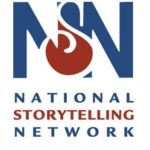 c/o Woodneath Library
c/o Woodneath Library
8900 N.E. Flintlock Road
Kansas City, MO 64157
Telephone: (800) 525-4514
Website: https://storynet.org
Email:
Find us on social media!
Facebook: https://www.facebook.com/National-Storytelling-Network-217381542906/
Twitter: https://twitter.com/NSNStorytellers
Instagram: https://www.instagram.com/nationalstorytellingnetwork
YouTube: https://www.youtube.com/channel/UCBedmDdaRi9N-4Hs-QeYNqw
